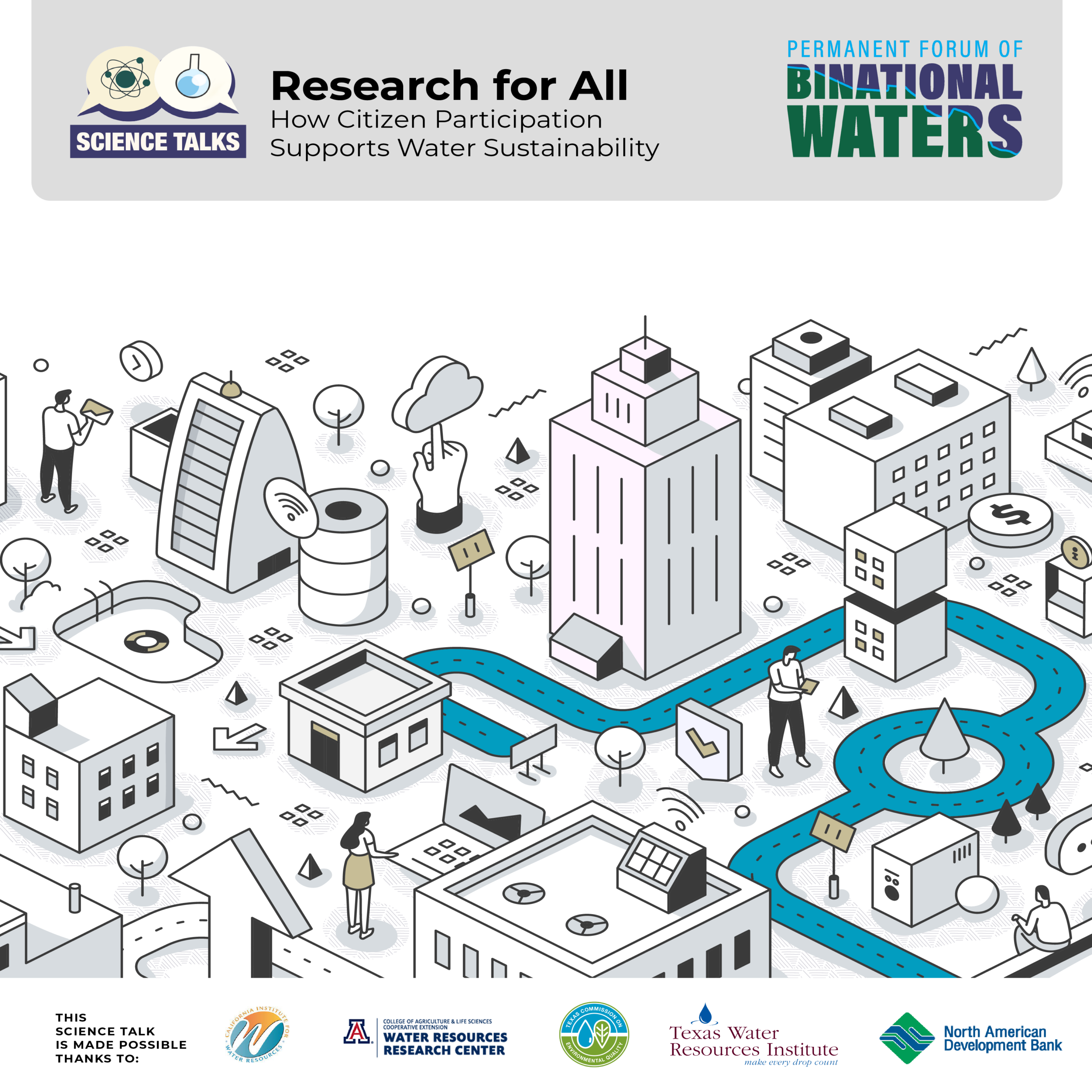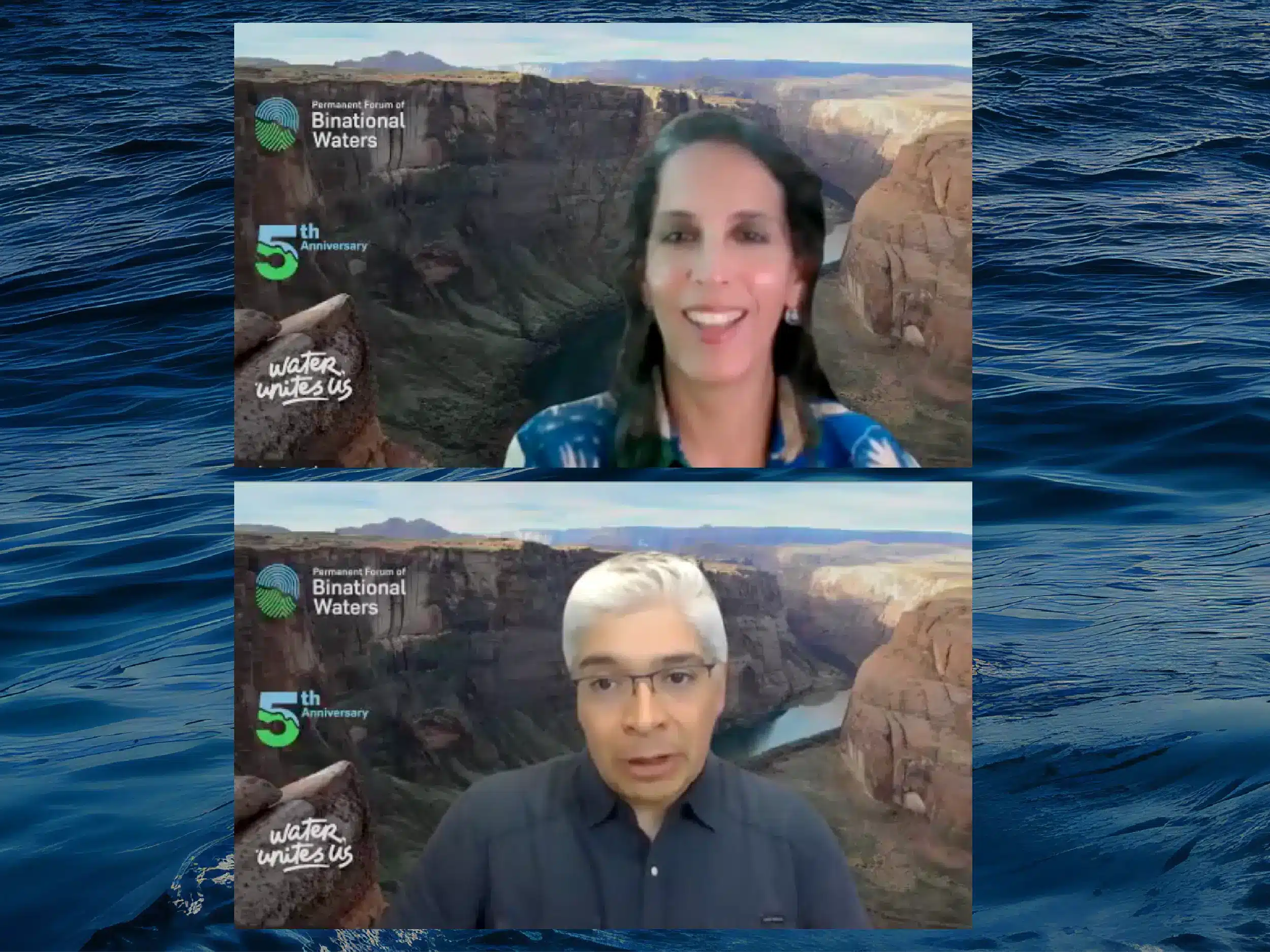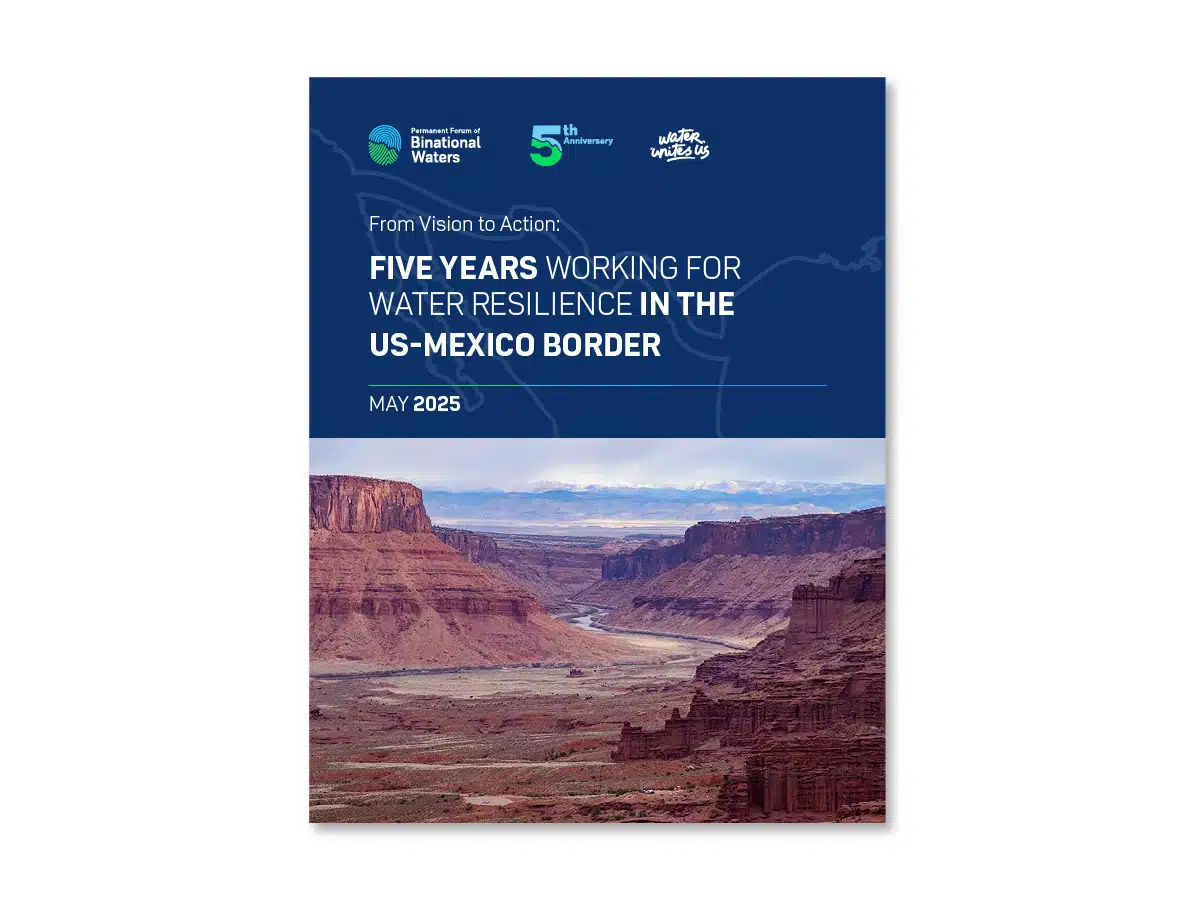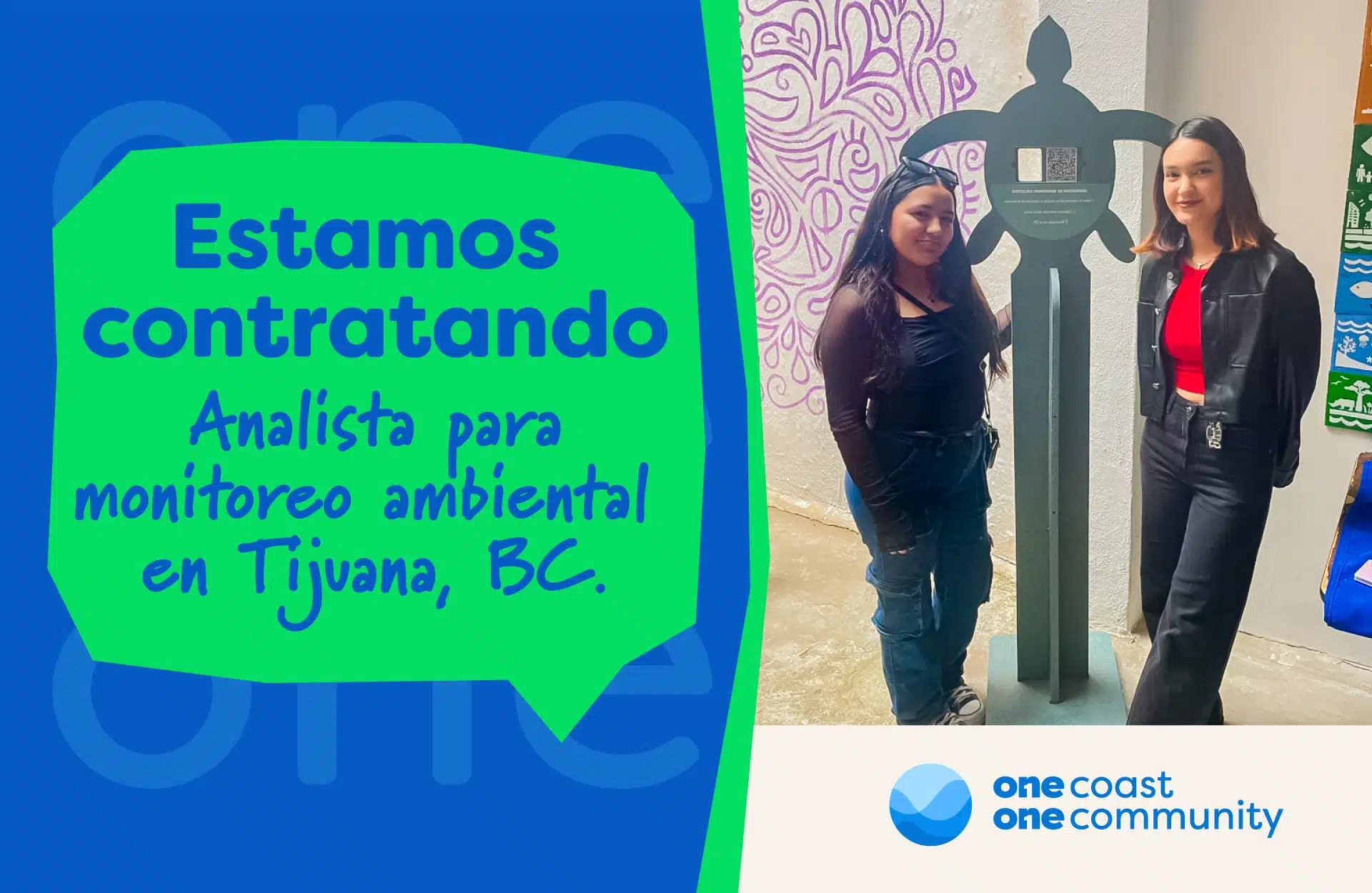This panel discussion explored how citizen science empowers communities to contribute to water sustainability efforts. Experts highlighted the value of citizen participation in data collection and analysis, particularly for water quality monitoring.
On February 21st, a panel of experts convened to address the fundamental role that “citizen science” plays in strengthening global efforts for water sustainability.
The online event organized by the Permanent Forum of Binational Waters, featuring renowned professionals from various academic institutions and research fields, delved into the transformative potential of involving citizens in scientific initiatives.
The essence of citizen science was explored, emphasizing its importance as a participatory approach where non-professionals in scientific fields actively contribute to research, especially in data collection and analysis.
Kelly Albus, Research Scientist at Texas A&M – TWRI and Fellow at the Meadows Center for Water and Environment, highlighted the evolution of citizen science, emphasizing its role in bridging data gaps and improving accessibility to scientific research, particularly in water quality management.
Erick Valazquez, Master in Resource Economics and PhD student at the University of Bonn, Germany, presented the One Coast Community Project as evidence of the effectiveness of citizen engagement in monitoring coastal erosion and water quality, emphasizing its capacity to foster interdisciplinary collaboration and community participation.
The inclusion of citizen participants for data collection as part of research for water sustainability is a project that is part of the work of the Permanent Binational Water Forum, called Towards Coastal Resilience: Monitoring Water Quality and Erosion through Open and Citizen Science.
Similarly, Alma Huerta Vergara, PhD in Sustainability Sciences at the Geology Institute of UNAM, addressed the numerous benefits of citizen science, including its ability to expand data collection capacity, empower citizens, and raise awareness about environmental issues.
Additionally, Jesus Manuel Ochoa, Graduate Student in Earth and Resource Sciences at UTEP, outlined the practical applications of citizen participation in addressing water sustainability challenges, citing examples from various case studies in northern Chihuahua.
However, the implementation of citizen science is not without challenges. Participants discussed limitations such as data quality control, member participation, and ethical considerations.
Despite these obstacles, the benefits to society and participating groups are substantial, ranging from improved environmental monitoring to increased public engagement in scientific processes.
At the end of the discussion panel, during the Q&A session, panelists addressed queries regarding training techniques for citizen scientists, the correlation between citizen-led initiatives and public policies, as well as the challenges of bridging the gap between science and policy-making.
Moderating the discussions were Rosario Sánchez, Director of the PFBW.








Responses